— Leo Tolstoy
Veganism- An Ethical Philosophy
Many people have a faint sense that they’re indulging in something deeply wrong when eating meat. Since only a few actually give it a considered thought, this faint sense dissolves fairly quickly. For those who do dwell on the idea for any length of time, veganism emerges as the only logical corrective. More than a diet preference, veganism is an ethical philosophy, that tries to minimise the suffering, exploitation and death of sentient beings, as much as reasonably possible. This also entails bringing an end to the commodification of animals for entertainment, food, clothing and research, and granting them a ‘moral consideration’, something which veganism considers every sentient being to be deserving of.
A vegan would therefore not only abstain from meat or any animal derived products in their diet, but also refrain from buying clothing and other accessories that have been made using animal fur or skin, including cosmetics that either use animal derived ingredients or have been tested on them. An informed choice of this sort is born out of an understanding that animals being less intelligent or able than humans, does not make them dispensable commodities of convenience and vanity.
At first glance, it seems too extreme and impractical a philosophy to actually centre one’s life around, an ideal taken too far. But as one begins to demystify the confusion around its basic tenets, it comes across as the only reasonable thing to do
It’s important to mention however, that depending on one’s place of residence and availability of resources, it’s possible, and at times inevitable, that one would fail to abide by the principles of a vegan lifestyle in their entirety. For instance it might simply be impossible to refrain from animal products for someone living in abject poverty or perhaps while enduring the unpredictable elements of nature. But the very definition of veganism allows for such flexibility to someone trying to construct a lifestyle around this philosophy, through the phrase- “..as much as reasonably possible.”
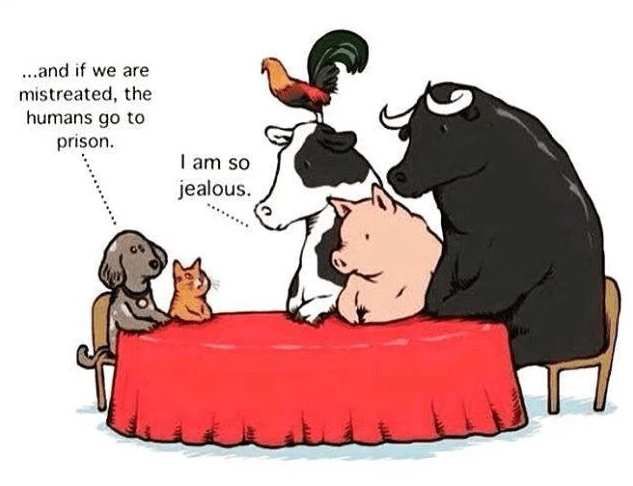
Therefore, barring certain extremities of circumstances where killing and eating animals might be the only option for survival, the rest of humanity cannot be privileged a similar moral exemption on grounds of ‘culture’, ‘taste’, ‘habit’ or ‘convenience’. In light of the discussion in part 2, a conscious decision to make amends in one’s lifestyle in accordance with the ethical philosophy of veganism, certainly comes across as a moral obligation, and not merely a moral virtue.
To say that you are for animal rights is therefore to say that you’ve tried to bridge this gap between knowledge and practice. The journey of reducing an animal to a dish entails a very specific process. And once the obscene atrocities of this process are laid bare, talking about animal rights no longer remains a process of convincing people to live by some utopian standard, but to ask them to live by their own.
An informed choice of this sort is born out of an understanding that animals being less intelligent or able than humans, does not make them dispensable commodities of convenience and vanity.
The ‘Name the Trait’ Argument

What’s that special ‘trait’ in humans that the animals lack, that gives moral worth to human lives, but not to the lives of animals?
Without getting into formal syllogistic logic and philosophy, what’s often referred to as the NTT argument, can be understood and appreciated in its entirety even by a layman. For it to work in any debate, the NTT argument merely requires one to be logically consistent and to concede moral worth to humans.
The argument simply asks for a ‘trait’, that is present in humans but absent in animals, which has resulted in humans getting moral worth or right to life, but not the animals. Which is to say, what’s that special trait in humans that the animals lack, that gives moral worth to human lives, but not to the lives of animals?
Superior intelligence, linguistic sophistication, greater self awareness, technology, culture or the ability to cooperate in large numbers and form a viable global civilisation, are the most common answers given to justify why Homo Sapiens get to have the greatest slice of this moral worth. However, the two corollaries of the argument that logically follow, should also be kept in mind. If these traits are what truly differentiate humans from animals in moral worth, then —
-
if these traits were hypothetically taken away from human beings, then their moral worth would come down to the same level as that of the animals.
-
Also if these traits were hypothetically given to animals, then their moral worth would be elevated to the same level as that of humans.
In light of the NTT argument and it’s corollaries, the common answers given to the NTT question now quickly result in logical absurdities. If say, ‘superior intelligence’ is what the differentiating metric really is, that gives human lives moral worth over animals, then that would also logically translate into revoking the moral privileges that we’ve given to the mentally disabled or those with severe cognitive impairments among humans, since they do not possess the trait of superior intelligence. It’s safe to say that one doesn’t require a degree in philosophy to realise that something’s wrong in giving the ‘intellectually impaired’ the same moral worth as that of the animals, or subjecting them to the same brutalities as we subject other animals, like for instance slaughtering them for meat.
Insofar as our intuition goes, taking away all possible traits that differentiate a human being from animals, still never quite renders him at the same level as that of the animals. There’s clearly something else that anchors our moral intuition here, that has unequivocally granted us a greater moral worth
If ‘superior intelligence’ indeed is the right metric, how wise would we really be to be according moral worth to individuals based on let’s say an IQ test? Perhaps it’s not a single trait, but a combination of all possible traits in humans, that should be considered together. And yet, intuitively we know that it’s possible for human beings to lack all of those traits, but still continue to possess a moral worth much above that of the animals. All humans that have been in a vegetative state since birth for instance, and do not possess any of the above mentioned traits, would still continue to hold a moral worth much above that of a chicken or a cow.
Even though there are obvious trait differences between humans and animals, there is simply no ‘special trait’ that’s present in us and lacking in the animals, that might be considered as the basis of us having the exclusive right to this moral podium.
There’s something intuitively self explanatory about being a human being, that instantly makes us seem deserving of a non negotiable ticket to the ‘superior moral worth group’
Speciesism- Unveiling an Arbitrary Metric
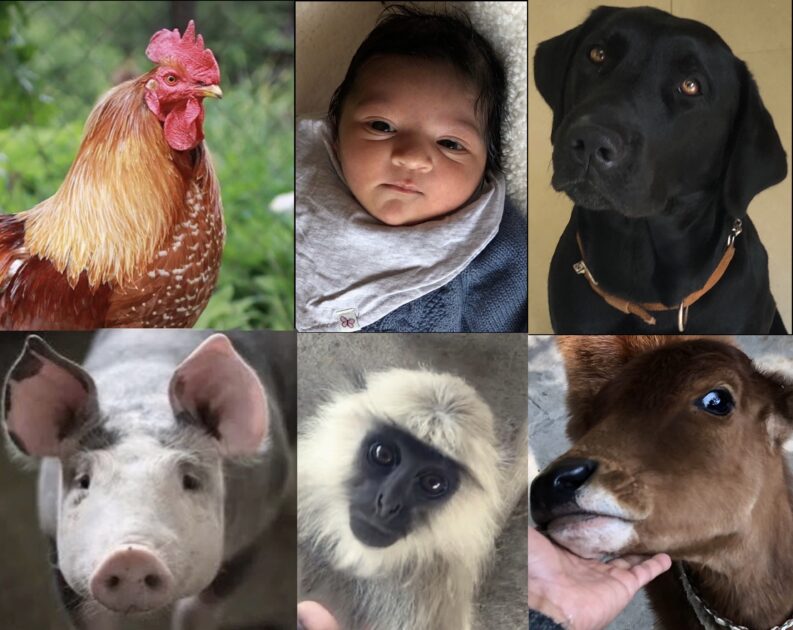
And so the justification simply comes down to them not being a member of our ‘species’. In the world that we’ve created, irrespective of the actual traits possessed, so long as one belongs to the same species as Homo sapiens, one would continue to have a moral worth above that of the animals. There’s something intuitively self explanatory about being a human being, that instantly makes us seem deserving of a non negotiable ticket to the ‘superior moral worth group’. Intuitively we’ve established ‘species’ as the metric to decide whether something is deserving of our moral consideration or not.
What happens to this moral framework of ours when we finally come across an extra-terrestrial life form in the future, that’s more intelligent, sentient, technologically superior and with a much more complex set of emotions, behaviours and cultures in every sense, than us? What reasons might we give ourselves not to farm and kill them like animals, or perhaps to them, for not farming and killing us instead?
But isn’t ‘species’ a totally arbitrary metric that we’ve decided to settle on? A metric that reflects both our convenience and the mindset of ‘might makes right’. Though we’ve rejected ‘ethnicity’, ‘skin colour’, ‘race’ or ‘nationality’, as metrics for deciding moral worth, since they’re arbitrary and result in racism, tribal hatred and xenophobia, for some reason we’ve failed to question our intuition of settling down on an equally arbitrary metric of ‘species’.
There’s an astounding compartmentalisation, even within the animals. There are those we love, that we call ‘pets’ and then there are those we eat, that we call ‘dinner’. Simply because we can exploit, inflict untold suffering and misery and eventually kill other species for our taste pleasures and clothing preferences, we’ve given our consent to these industries by buying their products and funding their businesses.
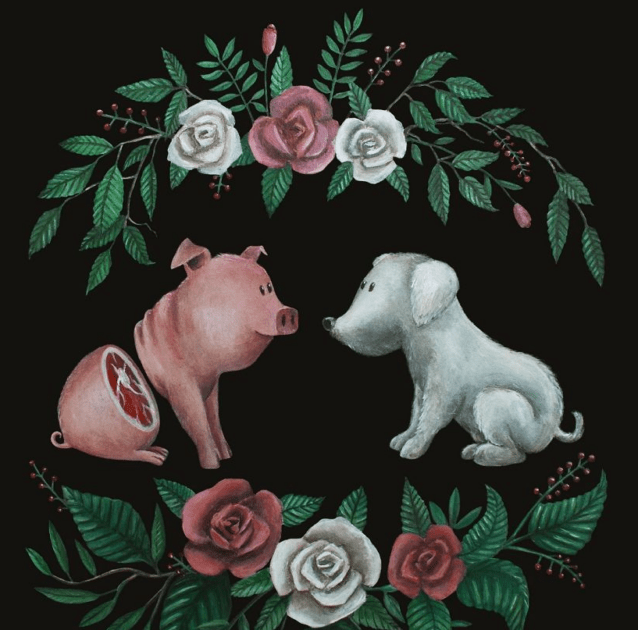
It’s almost as though our intuition simply doesn’t register that there’s a major flaw in our reasoning. What happens to this moral framework of ours when we finally come across an extra-terrestrial life form in the future, that’s more intelligent, sentient, technologically superior and with a much more complex set of emotions, behaviours and cultures in every sense, than the homo sapiens? What reasons might we give ourselves not to farm and kill them like animals, or perhaps to them, for not farming and killing us instead? If they truly are technologically and intellectually much ahead of us, and choose to use the same metric of ‘species’ to start farming homo sapiens, it would become instantly clear how wrong that metric we’ve chosen really is.
The same holds true if we were to achieve a sentient AI in the far future as well, that would be deserving of our moral consideration, irrespective of the ‘same species’ argument. The ‘species’ metric is simply not the right parameter to be using for giving living creatures the right to life, and there’s a need to re-calibrate our moral intuition in this regard.
Sentience- The Right Metric
“One does not meet oneself until one catches the reflection from an eye other than human.”
— Loren Eiseley
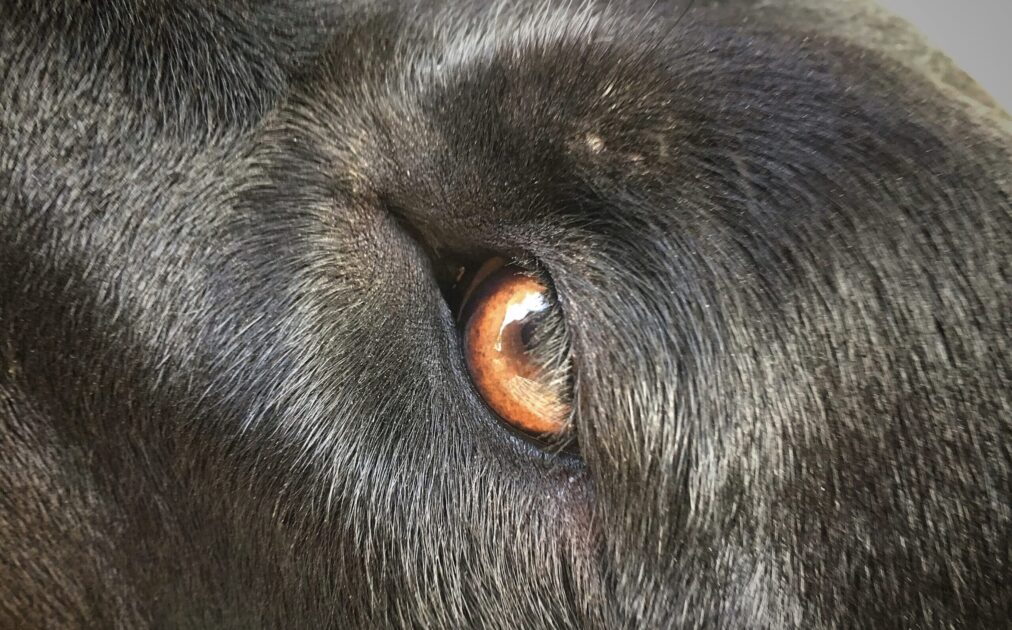
What would misery or joy mean for a world that consisted only of non living things? And would they really mean any different for a world with living things that were incapable of experiencing such affective states altogether? What could happiness possibly mean to a rock or to a bacterium in a pond? As absurd as these questions might sound, the obviousness of their answers sheds light on the fact that there needs to be a complex enough underlying biology, for a subjective experience to emerge, that can comprehend a state of being.
Going past the all too human tendency to anthropomorphise things in a poetic sense, it’s not hard to imagine how these affective states of being would be stripped of all their meaning in the absence of a capacity to experience them. Like any other state, the very concept of ‘misery’ and ‘flourishing’ is therefore premised on felt experience itself, without which the difference between the two would no longer remain intelligible.
‘Sentience’ quite simply put, is the ability to have a subjective first person experience. It’s the ability to experience both suffering and flourishing in its true sense. Sentience is also sometimes referred to as consciousness, and differentiating the two might often seem to be a matter of trivial semantic wordplay. However, for all intents and purposes they both refer to the same inner domain of perception, experience, feeling, cognition and volition.
‘Sentience’ or consciousness is an emergent phenomena that depends on variables like the presence of specific brain structures like the mid brain or the cerebral cortex, the degree of centralisation of the nervous system and the manner in which sensory information is processed by it, among others. And though the precise neurophysiological processes that give rise to conscious experience remain a matter of further research, it has allowed us to know what to look for when ascertaining the sentience or consciousness of a living being. It is this metric of sentience, that the philosophy of veganism anchors to, when granting a being the right to life.
On the 7th of July, 2012 a prominent international group of cognitive neuroscientists, neuropharmacologists, neurophysiologists, neuroanatomists and computational neuroscientists gathered at the University of Cambridge to reassess the neurobiological substrates of conscious experience and related behaviours in human and non-human animals. This culminated in the signing of what came to be known as ‘The Cambridge declaration on consciousness‘.
The following excerpt has been taken from the declaration—
————————————————————————————————————
“Convergent evidence indicates that non-human animals have the neuroanatomical, neurochemical, and neurophysiological substrates of conscious states along with the capacity to exhibit intentional behaviours. Consequently, the weight of evidence indicates that humans are not unique in possessing the neurological substrates that generate consciousness. Non-human animals, including all mammals and birds, and many other creatures, including octopuses, also possess these neurological substrates.”
————————————————————————————————————
The Declaration was signed by the conference participants that very evening, in the presence of Stephen Hawking, in the Balfour Room at the Hotel du Vin in Cambridge, UK.
Bite-Sized Rebuttals
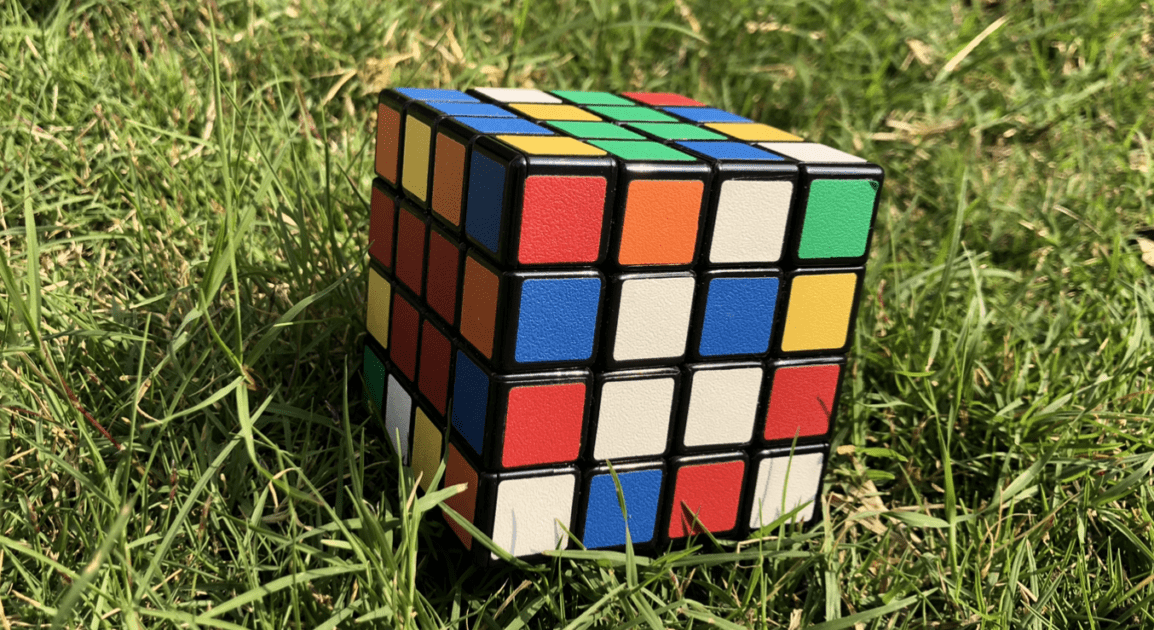
To keep things as concise and straight forward as possible, succinct rebuttals of common arguments used against the philosophy of Veganism are the best way to cover as much ground as possible in the shortest amount of time. Though each of these rebuttals can be further elaborated, a bite-sized version of them can serve as a useful ‘food for thought’, especially for the uninitiated. The following are some of the common ones —
Personal Choice/ I respect your choice to not eat meat, and you should respect my choice when I do –
Applying the same logic for someone who wishes to keep slaves for instance, by saying that it’s his personal choice reveals the fault in the argument. You cannot command respect for your personal choices, if there’s a victim involved. It’s like saying –“I respect your choice to not torture your pet dog, but you should respect my choice when I torture mine.”
Animals are not the same as Humans –
Yes they’re not. But all the reasons that make a human life valuable, fully and truly apply to animals as well. When talking about animal rights we’re obviously not talking about them having a right to vote or have access to a universal basic income. Instead we’re merely giving them a right to life, respecting their will to live out their natural lives, unhindered, without subjecting them to slavery, exploitation or commodifying them for their limbs, flesh and secretions.
There are obvious trait differences between humans and animals. But at the heart of it, it’s not intelligence, technology or sophistication, but instead our ability to suffer, experience pain, misery and love and both undergo and comprehend different affective states of being, that make our lives worth cherishing. These are the traits that we share with other sentient beings, and killing them needlessly for fleeting sensory pleasures, when alternatives are available, seems like a thing only an animal would do… pun intended.
Plants feel pain too –
It’s true to say that plants tend to grow towards sunlight, a well understood phenomena called Phototropism; or the fact that they release certain volatile organic compounds called Green leaf volatiles (GLVs) in response to tissue damage, but a physical response to stimuli of this kind should not be confused with the capacity to have conscious experience. After all our smart phones, computers and gadgets can all respond to stimuli, giving notifications and outcomes all by their own, but we don’t confuse them with beings that have an inner life.
The fact that plants lack any complex centralised nervous system or pain receptors for information processing, is evidence enough that they lack a first person subjective experience of any sort and cannot suffer. They are living beings, but they are not sentient. Equating pruning of trees to sawing off a leg of an animal therefore does not make any sense both intuitively and also on a physiological level.
Food Chain/ Natural Order/ It’s a circle of life, animals eat other animals too –
Food chains symbolise a part of the natural order, that are crucial in sustaining ecosystems. Nothing about a system is ‘natural’ that selectively breeds, genetically modifies, artificially inseminates, forcefully impregnates and systematically slaughters animals by the billions, under artificial conditions of light and feed. This is a system that exploits and brutalises sentient beings to serve our convenience, taste pleasures and clothing preferences.
Animals surely do eat each other, but they also commit incest, rape, assault and at times kill their own babies. But they cannot be held responsible for these actions because, unlike humans, animals do not have ‘moral agency’. So to say that humans are moral to kill animals simply because other animals do the same, does not pass muster, since humans are moral agents accountable for their actions.
Humans are Omnivores/ Our Ancestors ate Meat-
Our ancestors did eat meat, along with nuts, berries and fruits, but given their circumstance, they were mostly opportunistic eaters. Humans today and in the past have eaten both plants and animals, but they are anatomically much closer to being herbivorous. The side to side chewing motion of the jaws, a comparatively weaker stomach acid, a much longer intestinal tract, susceptibility to clogged arteries (atherosclerosis) from eating meat and the general inability to catch, kill and eat raw flesh without tools and cooking, all seem to make humans anatomically a perfect candidate for the herbivorous category.
More than the fact of eating meat, it’s whether our bodies are designed to process it properly, that should be considered for deciding our herbivorous or omnivorous status. Even deer are documented eating meat, and in some cases eating birds alive. The fact that they can show such an opportunistic behaviour, does not make them omnivorous.
— Dr. William C. Roberts
(editor American Journal of Cardiology)
Regardless of what category we fall into, unlike our ancestors, humans now possess moral agency, the ability to differentiate right from wrong, based on certain accepted principles that form a social contract. Given all the alternatives to animal products that we have access to and the terrible cost at which these products are made, the behaviour of our ancestors should be the last place for us to draw lessons from.
Vegan diet is Nutritionally Insufficient –
From the point of view of nutrition, a well planned vegan diet, has been regarded as appropriate for all stages of life including infancy and pregnancy by the British Dietetics association, Dieticians of Canada and the American academy of Nutrition and Dietetics among others. Most of the present day diseases including heart disease, high blood pressure, diabetes and cancer have been linked to cholesterol, saturated fat and heme iron, that are found in abundance in animal products.
Vitamin B-12 remains the sole supplement that one requires on a vegan diet, a supplement that is all too often suggested for meat eaters as well. With an ever increasing body of evidence of the potential health benefits of a vegan diet against hypertension, cardiovascular diseases, diabetes and certain forms of cancer, the philosophy’s nutritional, environmental and ethical moorings are hard to exaggerate.
Milk is fine, at least animals are not killed for milk –
Milk is a nutrient rich liquid produced by mammals for their infants before they can digest solid food. It is crucial for their wholesome development, since it provides them with the much needed nutrition, strengthens their immune system and helps them fight infections. After weaning however, like all mammals, humans no longer need milk for sustaining good health. The only milk we do require is our own mother’s milk. And post infancy, we no more need our mother’s milk, than we need the milk of a Cow, a Pig, a Donkey or an Elephant.
Humans are in fact the only species that not only continue to drink milk well past their infancy, into their adult life and beyond, but they’re also pretty much the only species that drink the lactation secretions of a ‘different’ species. The sheer absurdity and weirdness of it all has somehow managed to hide in plain sight under the garb normalcy dictated by culture.
In order for the cow to produce milk, it has to be lactating which is only possible if it is repeatedly impregnated, a feat that is achieved through artificial insemination. A cow remains pregnant for 280 days or over 9 months a year on average, and is given a rest of about 50-60 days post giving birth, after which the cycle of impregnation and lactation is repeated. From a natural lifespan of over 20 years, the average lifespan of a dairy cow is reduced to about 5 years, since when they cannot produce milk anymore, they are sent for slaughter.
The abuse of antibiotics, growth hormones and confinement in this cycle of reproduction aside, the calves born are to be separated from the cow almost immediately, and more importantly in the eyes of the industry the milk is not really meant for the calf, but for us instead. The male calves in the west are sent into the veal industry for eventual slaughter for meat, or are killed right away since they cannot produce milk. It’s far better to be getting all the calcium one need from nuts, seeds, beans, lentils, tofu and calcium fortified soy, almond, coconut or oat milk instead.
Moderation argument/ Humane slaughter/ I can reduce my meat consumption but not eliminate it altogether –
The only ideal amount of needless suffering is nil. The only purpose that the word ‘moderation’ serves here is to make us feel as though we’ve done our part. Killing 1 sentient being as opposed to 10 is theoretically better, but it’s still far from being enough.
How exactly can one humanely kill a sentient being, that doesn’t want to die and has a will to live? How exactly would you get that being humanely on the kill floor, when it knows what’s happening? It’s only when one unpacks this oxymoron that one understands that it makes little to no sense, especially in light of the methods of killing already in existence, that are considered humane. Putting the word humane in the front doesn’t change the fact that the act is inherently cruel. How about a humane murder or perhaps a humane assault?
If the world goes vegan what would happen to billions of farm animals? Agricultural economy would be devastated –
It is true that economies around the world including India are heavily dependent on agriculture and the manner in which we use animals. The success of AMUL as a milk cooperative for instance helped millions come out of poverty and improve their standard of living. But as customers begin to make conscious decisions, the transformation to veganism would be a gradual process, that would give sufficient flexibility and time for agricultural economies to adjust and eventually make alternatives like Rice/Oat/Almond or Soy milk equally profitable.
The billions of farm animals that are bred into existence solely for the purpose of slaughter, would no longer be required. The coming of mock meats and lab grown meats would allow for the gradual phase out of meat and fish. But it falls on us, the customers, to create a demand for meat and milk alternatives, so that these companies can thrive and can achieve economies of scale.
Animal Testing for Science and Vanity –
Even if a product harms animals, it can still be marketed to consumers. Conversely, just because a product was shown to be safe in animals does not guarantee that it will be safe to use in humans. Animals by the millions around the world, are made to go through excruciating invasive experiments, toxicity and burn tests until they eventually die. Large doses of test substances are put into their bodies through injecting, force feeding or inhalation, that slowly poisons them. Chemicals or cosmetics are dripped into the eyes of rabbits for instance to test their toxicity, that lead to ulcerations, redness, inflammation, cloudiness and eventual blindness. Dogs, Cats, Rhesus monkeys, Pigs and mice are the common subjects.
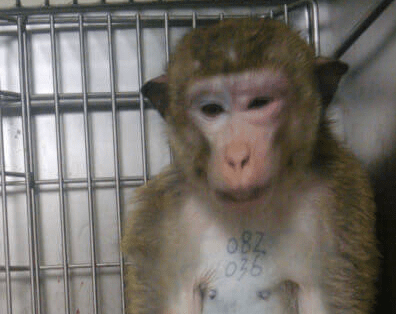
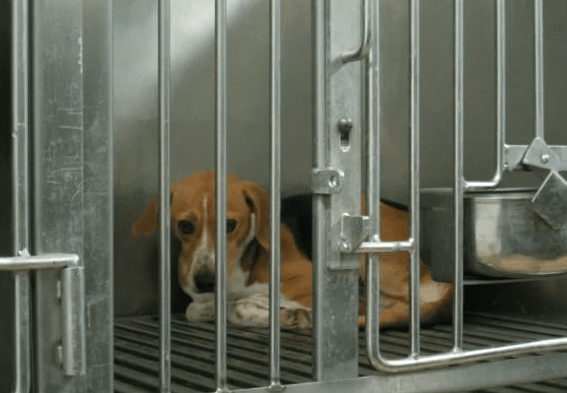
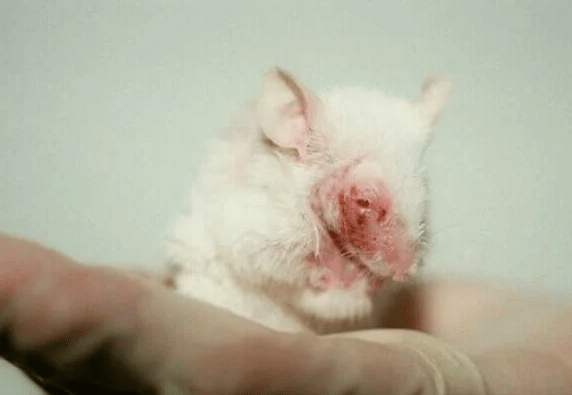
Vaccines and medications might be the last places which phase out animal testing, but as far as cosmetics go, it’s safe to say that they contribute to the needless misery, exploitation and death of creatures that deserve to have their lives valued at least a tad bit more than one’s vanity collection or perhaps their Instagram followers.
A Shift in Perspective
There’s a need to change the lens through which we view these animals, and re-contextualize this circumstance that we share with them. A perspective that considers not the ability of a living being to invent an iPhone or some complex culture, but instead its capacity to suffer, to accord it a moral consideration and a right to life. This might sound obvious to many and seem as though their lives are already functioning around this perspective, however their daily choices seem to convey a different story altogether.
To say that you are for animal rights is therefore to say that you’ve tried to bridge this gap between knowledge and practice. The journey of reducing an animal to a dish entails a very specific process. And once the obscene atrocities of this process are laid bare, talking about animal rights no longer remains a process of convincing people to live by some utopian standard, but to ask them to live by their own.
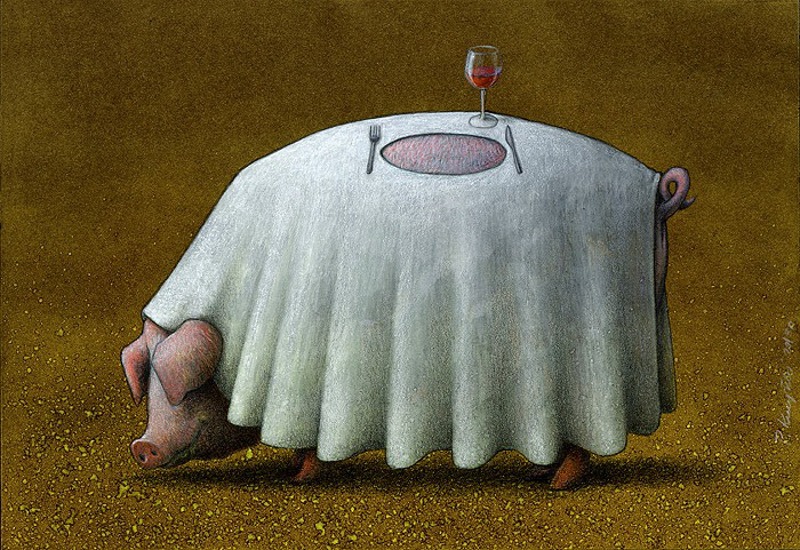
Many people would flinch from the very idea of killing animals themselves, to eat their flesh or use their skin as clothing. However we’ve managed to outsource our guilt and inconvenience, by paying someone else to do that for us. Going to the supermarket to get packages of neatly sliced meat, completely sanitised of all violence, just seems like the thing a reasonable person would do. And yet that precisely funds the perpetuation of exploitation, misery and death of billions of sentient creatures.
The unimaginable horror and pain that these animals go through, simply does not register on the collective moral radar of our society. So long as there is demand for these animal products, the supply would rise up to the occasion to satisfy it. It therefore falls on each one of us, as customers, to stop buying these animal products and thereby stop funding these industries, that have come into existence and thrive on both our ignorance and convenience.
It’s time that we fundamentally change how we relate to our fellow animals, to foster the best of what humanity has to offer to this planet, and every sentient being that lives therein. To not only be the most dominant of animals but also the most wise and compassionate. And what could be a more opportune year than 2021 to bring about this change, as the world emerges from a pandemic, that could’ve been prevented all along. In our quest to race to the very edge of advancement, it would do us well to ensure that we’ve got our ethical bearings in line, especially given how the choices we’ve made so far have now begun threatening our very existence.
“Whatever my own practice may be, I have no doubt that it is part of the destiny of the human race, in its gradual improvement, to leave off eating animals, as surely as the savage tribes have left off eating each other when they came in contact with the more civilised.”
— Henry David Thoreau
References
- ‘The First Step’– an essay by Leo Tolstoy
- Defining Veganism- The Vegan Society
- Understanding Speciesism
- The Cambridge Declaration on Consciousness
- The Problem of Consciousness
- The Veal Industry
- What Animals are Thinking and Feeling- Carl Safina
- Alternatives to Animal testing
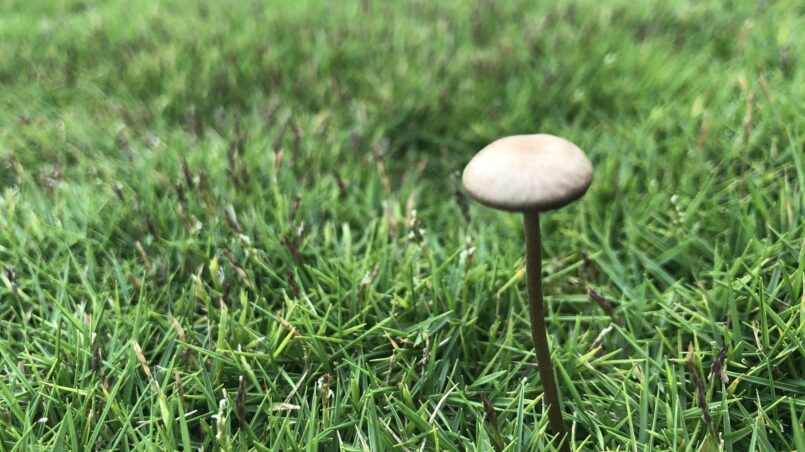






Blessings…Keep up the Spirt and Research….
I struggled to understand the true underlying essence of sentience before but this part has allowed me to see things in a better perspective. Thanks for writing such a well researched piece.
Waiting eagerly for next series of articles.
I really appreciate you taking out the time to go through it in detail Kunal. Being living is very often conflated with being sentient in such discussions, thereby making a lot of conclusions misplaced. I am glad I could touch upon and make the distinction clearer.